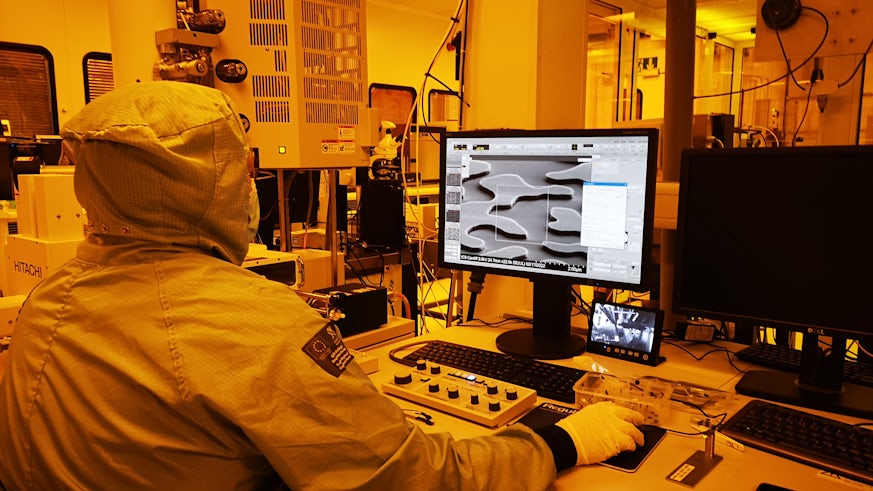Cardiff joins Quantum Photonics project
19 April 2022

Researchers at Cardiff University are joining a project that aims to create a library of standardised Quantum Photonics components that can speed up mass fabrication.
A team from the Institute for Compound Semiconductors will work on the £470k programme, led by Wave Photonics and funded by Innovate UK.
They will partner with the Newport-based Compound Semiconductor Applications Catapult and KETS Quantum Security to explore the use of computational design to develop a library of component designs for integrated quantum photonics.
Integrated quantum photonics is a scalable technology used in quantum computing, sensing, random number generation and communication, featuring miniature photonic chips that can transmit electronic signals at the speed of light.
By harnessing the behaviour of individual particles, quantum technology offers a range of future advances in fields including computing and remote sensing.
Currently, designers have to spend time and effort developing their own custom, high-performance components.
The project will use a computational approach to design a library of components that can be moved to different fabrication processes, enabling the development and scale-up of quantum technologies.
Cardiff University will develop a testing setup and performing measurements to allow Wave Photonics’ software to adapt the designs for maximum robustness and efficiency.
Professor Anthony Bennett, ICS, said: “We are excited to be part of this project, collaborating to deliver a new technology for quantum photonics. Working with collaborators like Wave we will realise the full potential of the technology.”
Wave Photonics will develop the software and component designs for the PDK.
Wave Photonics CEO, James Lee said “This project will enable us to make the most of the team’s background in quantum photonics and computational optimisation to not only develop a quantum photonic PDK at the target foundry, but to also develop the core tools to expand to other fabrication processes in an efficient way.”
The Compound Semiconductor Applications Catapult will be supporting the project by developing a testing rig for entangled photon sources and performing characterisation of the designed sources throughout this project.
Consortium member KETS Quantum Security, a quantum photonics company developing onchip quantum-secure communications systems, will provide input into to the project as a potential end user of a quantum photonics PDK.
